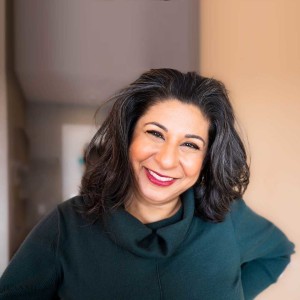
On this weeks episode, we’re excited to feature our guest, Dolly Chugh. Dolly is an award-winning psychologist and the Jacob B. Melnick Term Professor at the Stern School of Business at New York University. She studies how and why most of us, however well-intended we are, are still prone to race and gender bias.
In Dolly’s brand new book “A More Just future”, she shares the psychological tools we need to confront the white washing of our history so we can build forward better.
In our wonderful conversation with Dolly she shared specific actions people can take to engage with the paradoxes that exist so we can avoid getting stuck and instead keep moving forward to a more equitable future.
Action 1: It is important to think about whatever media you consume whether it's social media, books, podcasts, movies, music, video games. We can each review the content we have consumed, over the last week, and evaluate how much similarity there was in the voices that were centered and in the creators’ voices as well. We can then reflect on how similar those voices were to our own? Very much like an echo chamber audit.
Action 2: Building on the above audit. Think about how you might broaden and diversify that content. Simply by adding more diversity to the information we consume, Dolly points out that we will hear perspectives about the past and the present that are new. This alone she believes will set us on the path of being able to be more attuned to situations where we may be consuming racial fables or even perpetuating them ourselves.
Action 3: Try to notice the paradoxes where information exists and hold space for conflicting ideas, realities and perspectives to be true at the same time. We are often confronting together the reality that DEI is full of paradoxes – one being that one person can experience work as a meritocracy while another quite the opposite. Both experiences can exist in parallel without cancelling each other out. The gamechanger is being able to understand what creates those different realities and how the gap can be closed in the future. The more we can accept paradoxes with an open mind then the more we understand how inequalities are created and perpetuated and the better equipped we will be to tackle them.
No comments yet. Be the first to say something!